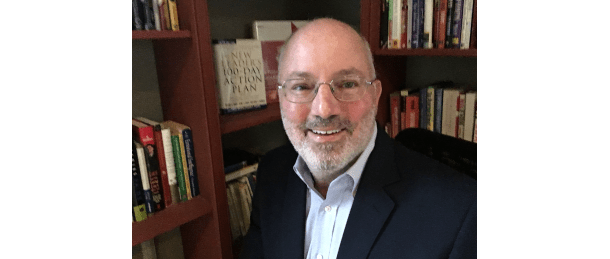How Not To Be Among The 40% Of Leaders Failing In Their First 18 Months
“Converge. Then evolve.” This was one of my favorite take-aways from the WCNY event, “Executive Onboarding Conversation with George Bradt.” It was part of the Career Series held by the Wharton Club of New York on March 8 in New York City.
George Bradt, WG’85, author and founder of PrimeGenesis, hosted a conversation on executive onboarding and leadership transitions. With 40% of leaders failing in their first 18 months, onboarding, according to George, is one of the crucibles of leadership. If onboarding goes poorly, it can be detrimental for everyone involved — leaders, employees and families included — but if it goes well, it can be a career accelerator.
What started as a talk related to ideas around Bradt’s program, The New Leader’s Playbook, evolved quickly into a candid and practical discussion on onboarding, team building and successful leadership, encapsulating lessons and perspectives from George’s experiences and series of books.
The session was filled with realworld, often humorous, examples of organizations and leadership stories that demonstrated the key points of onboarding. In attendance were 15 Wharton alumni sitting around a long boardroom table, posing related and unrelated questions for George. The session almost had a dinner table conversation feel to it, allowing attendees to bring some of their most pressing professional questions to the table, with George tailoring his talk around those questions. Here are some key takeaways.
Converge. Then Evolve.
George said, “Earn it. Don’t assume it. You have to converge into the new organization you join, and earn the
right to lead again. Past experience and performance are relevant only until the point of getting the interview and job. Among other things, get a head start by managing all stages of onboarding. This includes managing the time period between the offer and acceptance, by proactively reaching out to the team members you will be managing. It also includes managing the aspects after Day 1 and setting a collaborative tone, before you can begin to evolve your team as the new leader.”
It’s Up to You
George pointed out, “You are responsible for your own onboarding into a new organization or group. You chart out
your own plan and decide to get a head start. When it comes to managing a new team that is geographically dispersed (or virtual onboarding), it’s all about relationships. Attempt to have occasional meetings in person and face to face, or using video technologies for informal conversations, since ‘hallway chats’ do not happen on their own in a virtual setting.”
Change One Variable at a Time
George shared the example of Nike’s approach to change by citing the company’s entry into new markets and product categories. Instead of entering a new country and new market segment with a new product category all at the same time, Nike leads with what it knows and does best, changing one variable at a time. This was shared as an analogy to changing one’s job. “Start by changing one variable at a time — function, industry, company or country, leveraging your skills in the process.” This perspective seems as relevant in the context of looking for a job, as it is to launching a new product or service or targeting a new market segment to allow for leveraging one’s strengths and capabilities.
Major Pitfalls to Succeeding in a New Role
An interview question is a subset of three questions:
1. Can you do the job? (Strengths)
2. Are you going to love the job? (Motivation)
3. Can the employer work with you? (Fit)
This memorable framework also applies when evaluating why some employees are not succeeding in their roles.
This WCNY session was of immense value to those of us building our own companies, and constantly hiring and
onboarding new team members. I’m sure it was valuable to others in attendance evaluating career transitions and being proactive about onboarding into and succeeding in their new roles.
Umang Malhotra, contributed to this article. Umang runs her own design and digital marketing agency, The Ideas Team,Inc., and is an active member of the WCNY. You can reach Umang on LinkedIn or at umang@ideasteaminc.com.







































